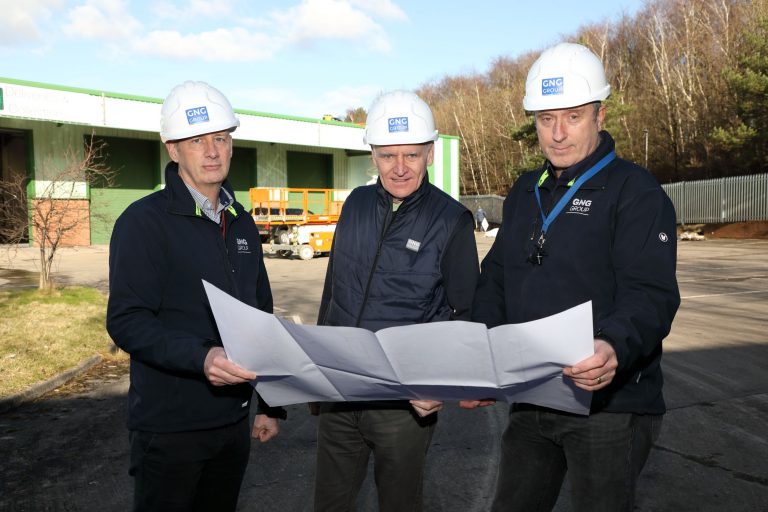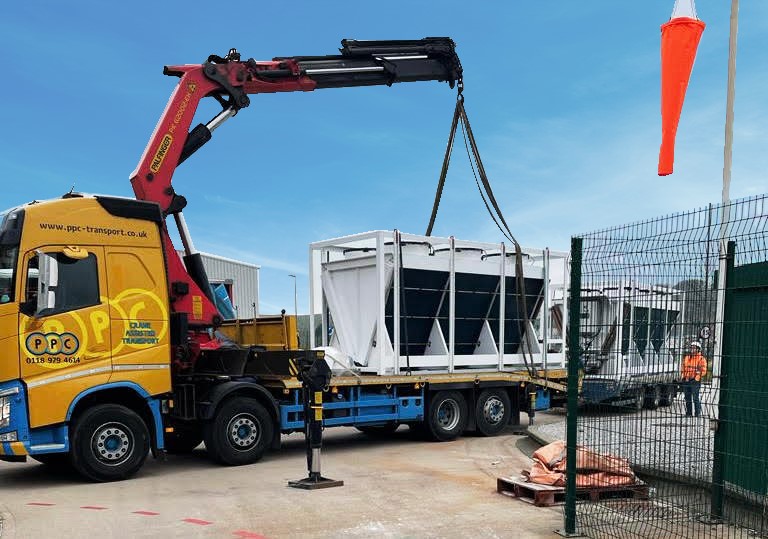Manufacturing M&A deals jump by a third surpassing pre-pandemic level
M&A transactions involving UK manufacturers jumped by almost a third in 2021, with dealmaking surpassing pre-pandemic levels, new research by accounting and business advisory firm BDO has found.
BDO’s analysis reveals that 779 UK manufacturing deals completed in 2021, compared with 595 in 2020 and 686 in 2019.
Most manufacturing subsectors saw double-digit growth in activity levels, but the clear frontrunner was Engineering Services which saw deal volumes rise by 48% as businesses in the sector realised the opportunity to transact and gain injections of funding for growth.
Private equity (PE) buyouts accounted for around one in five deals in 2021, broadly in line with the previous year, but the number of buy-out transactions rose by almost 40%.
PE interest was particularly strong in the Industrial Automation sector, with buyout transactions accounting for 24% of deals. Another key focus for PE investment was the Food & Drink subsector, accounting for 23% of deals in 2021, up from 16% in the previous year.
Cross-border transactions dipped from 45% of deals in 2020 to 40% in 2021. Sales of UK targets to overseas buyers rose by 31% to 214 deals, with the United States and Canada accounting for 31% of transactions by buyers of UK manufacturers. Meanwhile, acquisitions of overseas targets by UK businesses declined by 4% to 101 deals.
Roger Buckley, UK Industrials M&A Partner at BDO, said: “Despite the considerable challenges facing the sector such as rising input prices, supply chain disruption and shortages of key components, deal activity remained strong last year as investors sought to back companies with the most promising innovations and the strongest growth potential.
“Set against a backdrop of skills shortages and wage inflation, we saw particularly strong interest in Industrial Automation, and we expect the high demand for investment in this sector to continue to fuel M&A activity this year.
“With the drive to Net Zero coming into sharper focus, we are also likely to see increased interest in innovation that can accelerate the commercialisation of low-carbon technologies, systems and business models.
“We are also seeing M&A activity influenced by a desire to improve supply chain resilience. Geopolitical tensions and the experience of the global pandemic have prompted many manufacturers to re-evaluate their ‘just in time’ processes, adopting resilience over efficiency, with increasing numbers deciding to ‘nearshore’ in order to help reduce the risks of disruption. Given recent events, we anticipate that this trend will continue into the coming year.”
Cost of poor mental health to UK employers rises to £56bn a year
New mental health research from Deloitte has revealed that the cost to employers of poor mental health has increased, to up to £56bn in 2020-21 compared to £45bn in 2019.
The overall increase in total costs is due to higher staff turnover. Deloitte’s survey found that 28% of UK employees either left their job in 2021 or they are planning to leave it in 2022, with 61% of respondents saying this was due to poor mental health.
Young people (18-29 years old) were found to be most likely to have moved jobs or be considering a job move. One in five (21%) young people surveyed said they were planning to leave and one in four (24%) said they had intentionally left their job in the past 12 months. Of those who had intentionally left or planned to leave their job, two in three (65%) said this decision was driven by poor mental health.
Elizabeth Hampson, Deloitte director and author of ‘Mental health and employers: the case for investment – pandemic and beyond’, said: “We have seen poor mental health costs UK employers up to £56 billion a year, based on a new Deloitte survey, an increase of 25% in the cost of poor mental health to employers compared to 2019.
“Mental health issues are a strong driver for the ‘Great resignation’. Long hours, increased stress and job insecurity have had a detrimental impact on quality of life during the pandemic. People are leaving their jobs, re-evaluating their careers and changing occupations in large numbers.
“Burnout among employees, such as feelings of exhaustion, mental distance from the job and reduced job performance, have been more evident during the pandemic. Measures by employers to improve mental wellbeing should not only benefit employees themselves but should also reduce employment costs such as recruitment costs and provide broader societal benefits.”
Jackie Henry, managing partner for people and purpose at Deloitte UK, said: “Wellbeing must become a strategic priority for organisations of every size – not only to support employees experiencing anxiety and stress, but also to prevent people from becoming overwhelmed and overworked in the first place.
“COVID-19 has given us an opportunity to tackle stigma and improve awareness. Leadership should set the tone at the top: whether continuing to invest in training to help managers and employees spot signs of poor mental health and understand how to reach their employees and help.”
Emma Mamo, Head of Workplace Wellbeing at Mind, said: “It’s shocking but not surprising that the cost of poor mental health to employers is now up to a huge £56 billion per year. We know that the pandemic has taken a huge toll on the mental health of the nation, including our colleagues.
“A 2021 survey by Mind of over 40,000 staff working across 114 organisations taking part in our Workplace Wellbeing Index revealed that two in five (41 per cent) employees said their mental health had worsened during the pandemic.
“The lockdowns and restrictions gave lots of us more time to think about what we wanted from our lives and our careers, and as a result more of us decided to leave or move jobs. Recruiting and retaining talent is hugely important to employers, and we know employers who invest in staff wellbeing are more likely to report having staff who are happy, productive and less likely to leave.
“This latest report from Deloitte suggests employers see a return of £5.30 on average for every £1 invested in staff wellbeing so it’s never been timelier to prioritise staff mental health, especially given staff are once again adjusting to new ways of working, with many employers trialling hybrid working.
“Mind can help employers of all sizes and sectors to create mentally healthy workplaces, including through our training and the resources available via our website.”
New defence and security cluster to be created in Lincolnshire
A new defence and security cluster is to be created to support the surveillance and reconnaissance capability at RAF Waddington.
The Defence and Security Board of the Greater Lincolnshire Local Enterprise Partnership is to form a Greater Lincolnshire Regional Defence & Security Cluster to support the ISTAR Force at RAF Waddington.
ISTAR stands for intelligence, surveillance, target acquisition and reconnaissance.
The new development was announced at a dinner at the Belton Woods Hotel near Grantham on Wednesday 30 March.
The dinner was hosted by the Greater Lincolnshire LEP and attended by representatives from the Government’s Defence and Security Accelerator (DASA), which oversees the Regional Defence & Security Cluster programme.
Others attended from the LEP, local RAF stations, government and local authorities, business, industry, the University of Lincoln and the Lincoln Science & Innovation Park.
The guest speaker was the former Chief of the Defence Staff, Air Chief Marshal Sir Stuart Peach, who outlined the region’s historical links to the defence sector, its long tradition of innovation, and its suitability to host a cluster focused on supporting innovation in the field of intelligence, surveillance, target acquisition and reconnaissance.
Julian Free CBE, Deputy Vice Chancellor at the University of Lincoln and Chair of the LEP’s Defence and Security Board, said: “This event was all about putting our defence and security sector on the map and discussing our ambitions for this very important area.
“Defence and security is one of Greater Lincolnshire’s game-changing sectors and the dinner was an excellent opportunity to bring some of the key players together to discuss the way forward.
“Our ambition is to establish Greater Lincolnshire as a national defence and security innovation, production and service hub and to promote our ability to develop and support defence and security programmes to increase regional wealth through greater public and private inward investment and the creation of high-value, better paid jobs.
“Our history, our present-day links with the RAF and our growing capabilities in defence and security technology make Greater Lincolnshire an eminently suitable location for this cluster.”
The focus of the Greater Lincolnshire Regional Defence & Security Cluster will be on the sensors, tools and processes required to collect information and data to enable better and quicker decisions.
This field encompasses all facets of data science (collection, management, storage, fusion, wrangling, analytics, machine learning, artificial intelligence and visualisation), secure communications and cyber-security.
Harry Leyland, Campaign Manager at defence and security firm Leonardo UK, said: “As a Defence and Security Board member representing Leonardo it was an outstanding event and reinforced the reliance and respect that we as prime contractors have for our very broad regional SME sub-contractor support.
“The efforts of the Defence and Security Board to develop the Regional Defence and Security Cluster were strengthened by the superb speech given by Air Chief Marshall Sir Stuart Peach.
“The board will continue to direct all efforts towards the successful establishment of the RDSC, promoting to the MOD the great defence and security benefits it will provide and the advantages Lincolnshire and the surrounding region offer to the establishment and growth of such an enterprise.”
Dale Atkins, International Trade Adviser at the Department for International Trade, said: “This initiative will certainly help to raise the profile of Greater Lincolnshire as a region and help showcase the unique depth of capability on offer here.”
RenewableUK says electricity could be ‘gas free’ in five years
RenewableUK is proposing a wide-ranging plan to the Government outlining key steps which would enable the UK to effectively end dependence on gas for electricity within five years.
The organisationn’s CEO Dan McGrail said: “With the rocketing global cost of gas continuing to push up energy bills, Government and industry need to work together to cut our reliance on gas to generate electricity as quickly as possible and I believe we can do that within five years. We can start on this by doubling down on what we can get in this year’s clean power auctions, to protect consumers from global price shocks in the future.
“If we remove the cap on cheap onshore wind and solar capacity in this auction, then shovel-ready projects could be generating power by next year. And we risk being penny-wise but pound-foolish if we don’t take this opportunity to invest a small amount extra in offshore wind for a huge payback to consumers, alongside growing our domestic supply chain. The new factories we want to see in ports around the UK are a golden opportunity to create thousands of new jobs and attract billions in private investment, especially in parts of the country which need levelling up most.
“And we can’t have a new energy strategy without a plan for grid investment alongside it. National Grid needs the freedom to invest more in accelerating the transformation of our energy system, to make the most of the huge amounts of renewable electricity we’re generating. There’s a pressing case for Ofgem reforming grid charges for renewable generators, as the current system actively deters investment in some of the UK’s largest and most productive projects at a time when we desperately need new power sources.
“These extraordinary measures can boost the UK’s energy security faster than any alternative and our plans for a rapid shift away from gas power is the best option for consumers”.Replacing gas with new renewable energy capacity to generate power would reduce the country’s vulnerability to huge fluctuations in global gas prices which are hurting consumers, as well as accelerating action against climate change.
Renewables UK says gas prices are many times higher than the cost of renewables, low carbon technologies offer the cheapest route to the UK’s energy independence, so the industry is keen to work more closely with Ministers to ensure new renewable projects are built faster and any remaining fossil fuel generation plays only a minor role in peak demand. With renewables already set to expand rapidly this decade, the plan would unlock a further 25% growth in renewable power by 2030.
The measures in the Renewable Energy Response Plan include increasing the amount of new renewable capacity which will be secured in this year’s auction for contracts to generate clean power. This can be achieved by removing the limit imposed on the amount of onshore wind capacity which can go ahead in this auction and raising the budget available for offshore wind as more projects are now shovel-ready than when the Government set out their initial ambitions. By investing an extra £68 million in the budget for offshore wind, we can cut consumers’ exposure to gas by £1.5 billion.
Government should also ensure that the planning process for renewables moves faster, to maximise the capacity that can be secured from annual clean power auctions starting in 2023. Planning decisions for offshore wind projects should be taken within a statutory timeframe of 1 year, whereas it’s currently taking at least 2-3 years. The planning regime for onshore wind in England is in urgent need of reform as in practice it is blocking nearly all new projects from going ahead, including those with broad community support. Most UK onshore wind development will take place in Scotland where, wind speeds are strongest, and the Scottish Government should clarify and expedite the planning system, which is currently being reviewed.
Other key reforms are needed so that regulation doesn’t undermine investment in renewables. The energy regulator, Ofgem, should urgently enable new grid investment to bring forward renewable projects faster and tackle the enormous disparities in the way renewable energy generators are charged for using the grid – for example, projects in Scotland pay 15 times more for this than generators in England and Wales. New rules are also needed to bring forward grid-scale batteries as fast as possible.
Innovative technology can play a part too, as the cost of green hydrogen falls rapidly. If the Government brought forward a 5GW renewable hydrogen target by 2030, this could replace 5% of total UK gas demand, equivalent to £5.7bn.
Extra MSA, operators of Leeds Skelton Lake Services, completes network of high-power electric vehicle chargers
Extra MSA Group has partnered with Europe’s leading high-power charging network IONITY to launch a complete network of high-power charging stations for electric vehicles (EVs), now available at all Extra MSA Group motorway service areas (MSAs) across the country. The installations are a welcome step towards creating a fully-connected network fit for the future of EV usage, helping ensure that customers can access reliable, ultra-fast charging points and undertake long-distance journeys with increased ease as the country transitions to more environmentally-friendly vehicles and modes of transport.
IONITY is continuing to increase the number of high-powered electric vehicle charging points across Extra MSA Group’s MSAs and is on track to deliver six high-powered chargers at each site ahead of the Government’s 2023 target. The new IONITY charging stations at Extra MSA Group’s MSAs are among the highest-power facilities available on the motorway network in England, geographically spread from Cullompton in the South, to Leeds Skelton Lake in the North.
IONITY in conjunction with Extra MSA Group has already installed 38 charging points with a high-speed charging capacity of up to 350kW across all eight of its MSA locations, with more to follow at existing and proposed new MSA developments.
In preparation for 2030 when the sale of new internal combustion engine cars/light vehicles will be prohibited, and in response to increasing electric vehicle uptake with more new fully-electric cars registered in the UK last year than in the previous five years combined, Extra MSA Group’s connected EV charging network will help ensure customers can continue to undertake long distance journeys with full range confidence.
Andrew Long, CEO at Extra MSA Group, said: “Technology is rapidly advancing and Extra MSA Group is delighted to be embracing this, working in conjunction with IONITY which is successfully delivering some of the highest-powered charging stations on the motorway network. At Extra MSA Group, we are committed to providing all road users with a safe environment to take a break from their journeys, rest and refuel in high quality, comfortable facilities. Our work with IONITY further enhances these overall objectives.”
Andreas Atkins, Country Manager UK & Ireland at IONITY, added: “IONITY’s continued partnership with Extra MSA Group demonstrates our commitment to drive forward the transition to electric mobility. Our state-of-the-art high-power charging technology will enable drivers to travel hassle-free across the country and charge their EV in the time it takes them to enjoy a cup of coffee at the Extra facilities. Serving up to 350kW charging capacity, our chargers work rapidly using 100% renewable energy – making for not only emission-free but carbon neutral driving and the installation of these in a network that connects drivers right across the country will make for a future of reliable journeys and quick stops for sustainable vehicles.”
Extra MSA Group and IONITY are leading the way to support UK drivers and wider environmental objectives through the transition to using more environmentally-friendly vehicles, prioritising sustainability on an increased scale. All electricity supplied is from 100% renewable sources to achieve high environmental standards, and all of Extra MSA Group’s locations also have the capacity to increase the number of EV charging points as customer demand increases.
Sheffield celebrates Olympic legacy in action
A major investment conference and celebratory dinner featuring a line-up of sporting superstars will be taking place in Sheffield this year to mark the 10th anniversary of London 2012.
The events will showcase the transformational economic, health, sporting and environmental legacies being driven and delivered by Sheffield Olympic Legacy Park.
The Park was set up after the London 2012 Olympic and Paralympic Games to deliver whole population improvements in health and wellbeing. It is the only Legacy Park outside an Olympic host city anywhere in the world and has already created a unique site attracting over £100m of private and public investment over the last seven years.
Bringing together expertise from academia, elite sport, the NHS, and public and private sector organisations, the Park is creating a unique cluster of life sciences assets including research centres, business incubators, educational facilities and laboratories for collaborative research and innovation in health and wellbeing.
Legacy Park Ltd Chair and former Sports Minister Richard Caborn, who was a key figure in bringing the Games to London in 2012, said: “If Sheffield had been a country in 2012 it would have come 14th in the medal table through the athletes we developed and trained in the English Institute of Sport Sheffield and we have not stopped there.
“We are building and developing in the North of England one of the country’s foremost Life Sciences Parks and with the backing of the city’s anchor institutions delivering, like no other, the Olympic Legacy the country promised.”
A ‘Levelling Up in Action’ conference at Sheffield Olympic Legacy Park in the Autumn will focus on how mixed-use innovation sites across the country are helping to develop the ‘six capitals’ of the Levelling Up White Paper agenda. It is expected to attract leading regional, national and international economic, political and business figures.
An ‘Olympic Legacy in Action’ gala dinner will take place at the English Institute of Sport Sheffield (EISS) on September 9 with guests including a host of well-known sporting names from the last decade. The event will celebrate Sheffield’s contribution to the Olympics and Paralympics, and the sporting legacy of the 2012 Games being created in the city.
Sheffield Olympic Legacy Park will also host a three-day ‘Olympic Legacy in Action’ community weekend from June 17-19 with city-wide and local service delivery partners providing a variety of free sport, health and wellbeing taster sessions.
The weekend is being organised with Yorkshire Sport Foundation and Sheffield City Trust and will form part of Sheffield’s annual ‘Move More Month’.
Richard said: “We have brought sports science and medicine, sports psychology and engineering together to create a unique legacy unrivalled anywhere in the world and I don’t think it could have happened anywhere else but Sheffield.
“From the start we brought together a partnership of public and private sector organisations with a clear vision of what we wanted to achieve – an agenda of change which we are delivering day after day, and which puts health at the heart of both economic growth and social mobility.”
Yorkshire linseed paint producer appointed to deliver transatlantic events for RIBA
Michiel Brouns, a natural paints expert and CEO of Leeds-based linseed paint manufacturer Brouns & Co, has been commissioned to deliver a programme of continuing professional development (CPD) events with the US chapter of the Royal Institute of British Architects, RIBA-USA.
In the first transatlantic collaboration of its kind, Brouns, a leading expert on property restoration and sustainability, is due to deliver the CPD workshops for architects in the US on the use of linseed paint, which is ideal for sustainably coating and preserving timber.
Taking place in conjunction with the British Consulate and the Department for International Trade, the seminars will take place in Boston and New York in April and May. The sessions will inform US architects how linseed paint can benefit US projects, and explain how and why it is used and its applications for historic properties and new builds.
Michiel Brouns said: “Linseed paint is undergoing a renaissance, especially in the US states where early European settlers constructed the timber buildings that survive to this day. From our base in Yorkshire, where the flax that is the paint’s principal ingredient is grown, Brouns & Co are seeing a surge in US orders, as Americans with historic timber properties to renovate and preserve turn to linseed paint as an ideal and totally sustainable coating, both inside and out.”
He added: “As one of only a handful of manufacturers of linseed paint globally, we are evangelical about its unique properties. I’m really excited about this collaboration with the US chapter of RIBA, which will help to spread the word about this paint and its tremendous potential for American buildings both ancient and modern.”
Catherine Clark, president of RIBA-USA said: “We believe in the role of architects includes helping to shape the built environment to become a healthier space for everyone. Linseed paint, with its incredible sustainability and durability credentials, is set to play a much greater role in reducing the environmental impact of building design and renovation here in the US and we’re thrilled to be able to work with Brouns & Co in this collaborative way.”
The inaugural CPD event takes place in at the British Consulate in Boston at the end of April. The New York linseed paint workshop is on 24 May, at the studios of award-winning architects Fairfax & Sammons, and will be accessible via Zoom, enabling a potentially unlimited audience of qualified architects and students to join the session online.
Work underway on GNG’s 1.75m investment in new West Yorkshire mattress manufacturing facility
Fast-growing West Yorkshire business GNG Group, which manufactures performance products for the healthcare, sports, safety, consumer and contract mattress sectors, is expanding its medical and consumer mattress division with the creation of a new 40,000sq ft factory and warehouse in Normanton. The new facility represents a £1.75m investment which will enable it to quadruple its mattress manufacturing capacity as well as creating at least another 20 jobs this year.
The mattress division will move from the group’s 25,000sq ft manufacturing site in Navigation Yard, Wakefield, following growing demand for its products, particularly its Komfi vacuum-packed mattress brand which was relaunched into the UK consumer market in 2020. The new facilities will enable GNG to expand mattress production capacity by more than 300 percent.
Based at Tyler Close in Normanton, the site is currently undergoing a 20-week refurbishment programme and is due to be operational by May. It will be equipped with low-energy lighting, solar power and electric fork trucks, with additional investment planned in machinery to maximise production and efficiency in order to further reduce its carbon footprint as part of the group’s commitment to offsetting in future years.
The space freed up at GNG’s Wakefield site will enable the group’s sports and safety division to grow, increasing floor space and capacity to meet rising demand for specialist products in this sector.
Group managing director Darren Potterton, who is spearheading the company’s expansion plans, added: “Given the group’s strong performance and continued commitment to providing employment during these turbulent times, we see a bright future for the company, supported by the new investment and key Government manufacturing initiatives.
“The facility will be ready in time to meet our new business demands and pivotal to growing existing and new export opportunities. British manufacturing is at an exciting time and I’m really looking forward to establishing GNG as a market leader in dynamic, eco-friendly medical and consumer mattress design both in the UK and beyond.”
Komfi sales director Stuart Hibbert said: ” Over the last two years, we have seen our business increase by 70 percent following the relaunch of the Komfi mattress brand into the UK consumer market as well as meeting high demand for our products from the NHS critical care supply chain during the pandemic. This expansion into a dedicated manufacturing facility for the mattress division will enable us to continue to increase our capacity and product range, improving customer choice as well as creating more than 50 new jobs in the region over the next three years and further boosting the local economy.
“In particular, there has been significant growth in the popularity of the new eco collections within our Komfi mattress range which are designed and developed to replace traditional foams with alternative, more sustainable comfort fillings that aim to take end-of-life mattresses out of landfill and back into the recycling chain. These types of carbon neutral products are already proving of huge interest to our retail customers and larger buying groups, who are looking for ways of meeting the demands of more eco-conscious consumers.”
Headquartered in Wakefield, GNG Group was established in 1987 and has grown into a £10m turnover business, employing more than 90 people. It has become an international brand leader and supplier of foam based products, primarily serving the medical, consumer and sports sectors.
Companies team up to deliver 4,000 new jobs with Doncaster employment site
Blue Anchor, owners of West Moor Park East, a 195-acre employment site off junction 4 of the M18 in Doncaster, has announced a partnership with commercial property developers, Litton Buccleuch.
The announcement reinforces Blue Anchor’s commitment to delivering the site – and an estimated 4,000 jobs – as quickly as possible. A planning application is currently lodged with Doncaster Council.
Litton Buccleuch is an established joint venture between Derbyshire-based Litton Property Group and Edinburgh-based Buccleuch Property.
Litton is an established and experienced commercial and mixed-use developer and investor. Buccleuch Property is the privately owned commercial property arm of Buccleuch Estates and is focused on all aspects of appropriate land use. It works nationally on its own projects as well as regionally with joint venture partners.
Litton Buccleuch recently delivered a £70m GDV 860-bedroom student housing scheme in central Sheffield which was sold to Fusion Student Housing.
West Moor Park East, located close to Edenthorpe and Armthorpe, has attracted significant commercial interest already and could deliver much needed employment to aid the area’s post-COVID recovery. It sits next to the successful existing West Moor Park commercial development that includes businesses such as Ikea, Next Distribution Centre, Fellows Manufacturing, Scott’s Miracle Grow and Anglo Beef.
Development of the site would also complement public investment in the A630 West Moor Link dualling scheme, with works on this infrastructure well underway. This Council-led scheme has been supported by the Sheffield City Region and is intended to enable investment in new developments that create new jobs and homes. The proposals for West Moor Park East will help to deliver on these aims.
Jonathan Moses, a director of Blue Anchor Leisure, said: “We’ve been firmly committed to delivering this investment in Doncaster for some time now, and today’s announcement adds established names from the development industry who will assist us in swift delivery and bring a strong track record of success.
“We have always stressed the deliverability of this site which is in a perfect location close to existing commercial development and the transport network. A planning application is in with Doncaster Council and is progressing well. We are hopeful of a decision soon.”
A spokesman for Litton Buccleuch said: “We have been interested in this highly strategic site for some time and are delighted to have now entered into an Agreement with Blue Anchor. We believe there is a compelling case for development on the site and a strategic shortage of land locally, regionally and nationally.
“It links well with the airport and Motorway network and existing employment schemes. We have already received expressions of interest from end uses. We will shortly make further announcements after meeting with our agents and professional team.”
Blue Anchor Leisure has a long-established track record of bringing development land to the marketplace in Doncaster. These include 400 acres of land adjoining Doncaster Airport and 200 acres of land at West Moor Park, which has already seen the development of the Next distribution centre.
Doncaster-headquartered Barnsdales acted for Blue Anchor. CPP, Sheffield and Barnsdales are appointed agents for the scheme.
Newsome invests in new, eco-friendly chiller rental fleet to help manufacturers get ‘summer-ready’
Temperature and humidity control experts, Newsome, are delighted to announce they have just taken delivery of a brand-new range of energy efficient chillers and air handling equipment, for both Industrial & Environmental Cooling applications.
Their new rental range is ready for hire – featuring the latest energy efficient and environmentally friendly manufacturing technology, with many of the products featuring low GWP (Global Warming Potential) Refrigerants.
Richard Metcalfe, director, Newsome, says: “With the warmer months fast approaching, our new rental equipment will enable customers to rent a brand-new chiller to keep their manufacturing processes going, whilst they carry out necessary maintenance and checks on existing equipment. Or they can be used as an emergency back-up in the event of a mini heatwave, when average temperatures exceed 30 degrees – which can result in equipment failure and downtimes.
“We’ve invested in energy efficient and environmentally friendly rental equipment, to provide our customers with the most cost-effective systems available,” he concluded.
Renting temperature control equipment, as alternative to buying, can provide multiple benefits:
- ‘Try before you buy’ – if you are unsure as to what equipment your business may need, you can use a rental system to gauge what would be the most suitable product for you.
- The option to keep your manufacturing process going, whilst Newsome carries out any necessary maintenance on your existing equipment.
- Renting rather than buying allows the flexibility to upscale/downscale your equipment in response to seasonal fluctuations in temperature.
- With cash flow and capital expenditure being stretched, hiring energy efficient temperature control equipment avoids the need for a substantial, initial outlay and enables you to take advantage of fixed monthly costs.
- Tax Relief – Rental expenditure is 100% allowable against corporation tax and will reduce what you pay. What’s more, rental equipment is not considered as an asset, so does not need to be included on the balance sheet.












